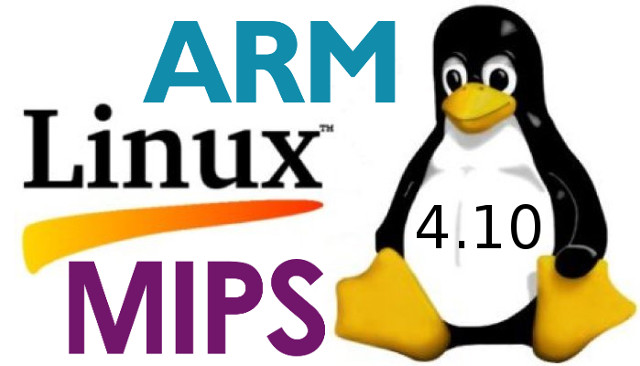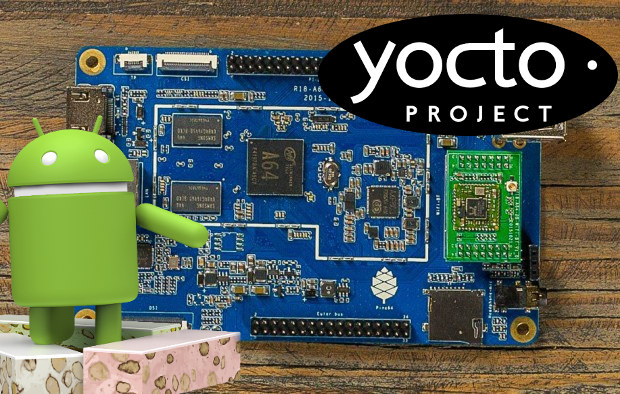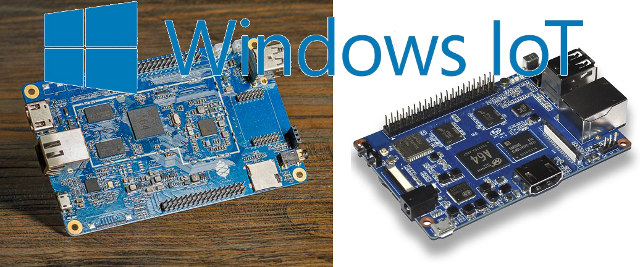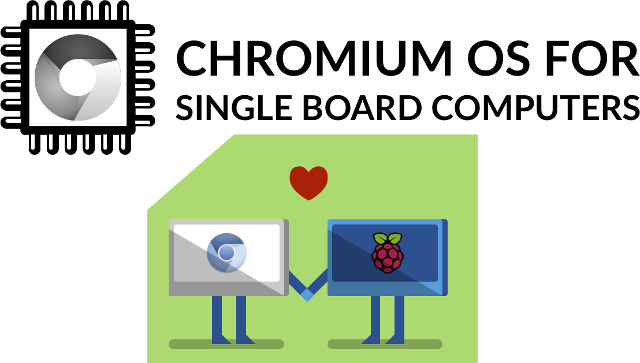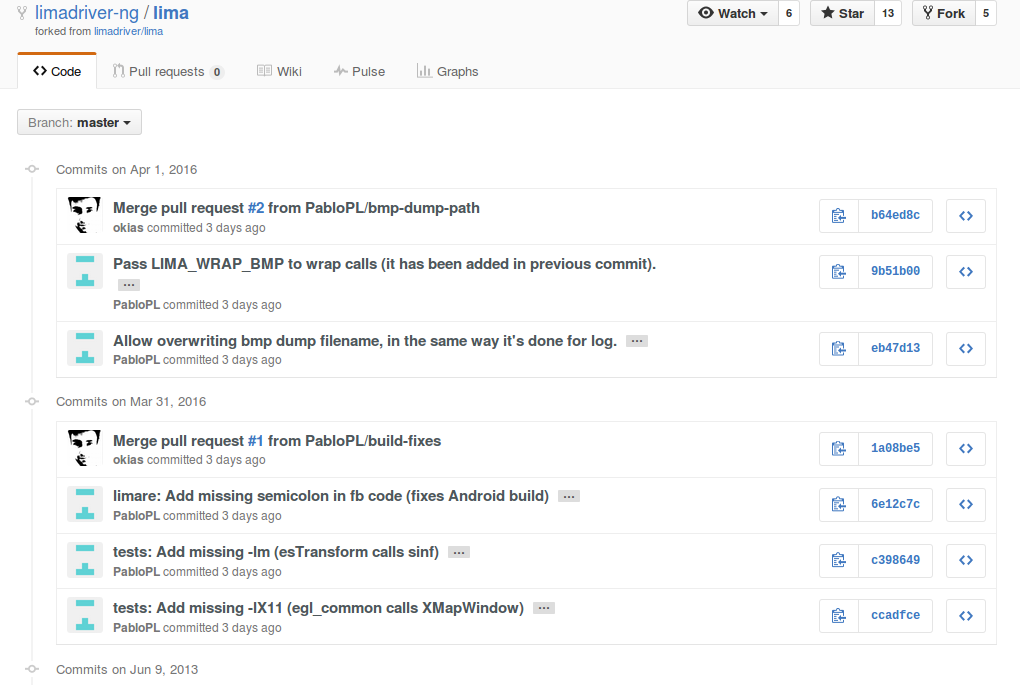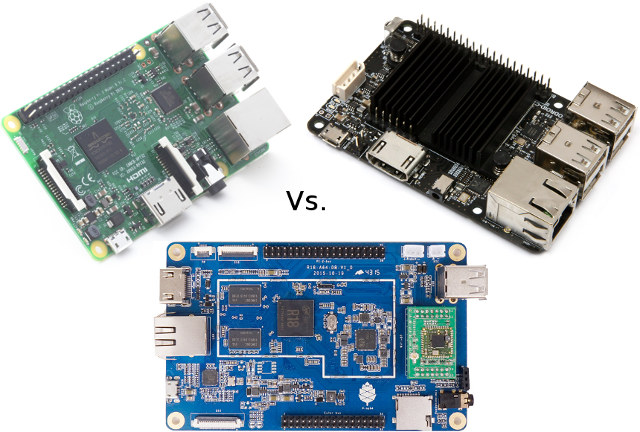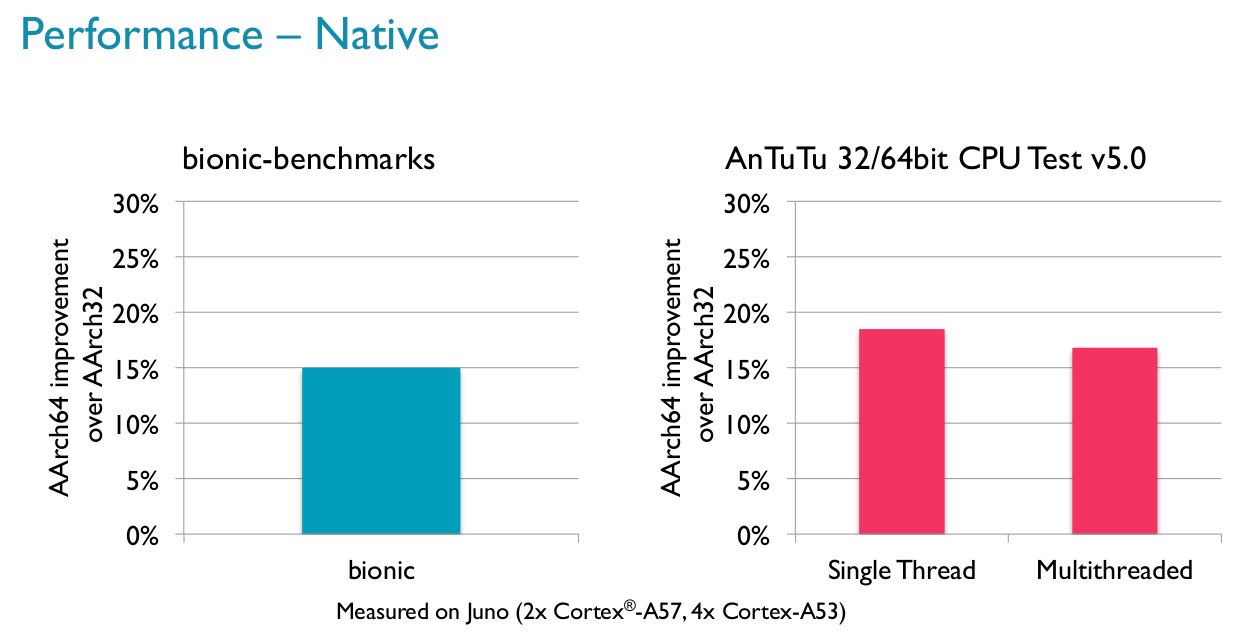OpenBSD has been supporting 32-bit (ARMv7) and 64-bit (ARM64) ARM targets, but the just released OpenBSD 6.2 adds support for two more ARM64 boards: Orange Pi PC 2 and Firefly-RK3399. Those two add to the ARM64 list comprised of Raspberry Pi 3, Pine A64/A64+, and AMD Opteron A1100 based development board and SoftIron OverDrive 1000 servers. Other platforms based on Allwinner A64 & H5, and Rockchip RK3399 could likely also be supported. If you want to try it on your board, visit OpenBSD 6.2 ARM64 page to download the files: INSTALL.arm64 – Installation notes SHA256 – Output of the cksum(1) program using the option -a sha256, usable for verification of the correctness of downloaded files. SHA256.sig – The above file, signed with the OpenBSD signing key for the 6.2 release, usable for verification of the integrity of the above file, and thus of the downloaded files. miniroot62.fs – A miniroot […]
Linux 4.10 Release – Main Changes, ARM & MIPS Architectures
Linus Torvalds has just released Linux 4.10: So there it is, the final 4.10 release. It’s been quiet since rc8, but we did end up fixing several small issues, so the extra week was all good. On the whole, 4.10 didn’t end up as small as it initially looked. After the huge release that was 4.9, I expected things to be pretty quiet, but it ended up very much a fairly average release by modern kernel standards. So we have about 13,000 commits (not counting merges – that would be another 1200+ commits if you count those). The work is all over, obviously – the shortlog below is just the changes in the last week, since rc8. Go out and verify that it’s all good, and I’ll obviously start pulling stuff for 4.11 on Monday. Linus Linux 4.9 added Greybus staging support, improved security thanks to virtually mapped kernel stacks, […]
Android 7.0, Android TV 7.0, and Yocto Project Ported to Pine A64 Boards
A few weeks ago, Raspberry Pi 3 got an Android 7.0 Nougat port, and it’s usable for some app even simple games like Angry Bird, but there are still problems with 3D graphics, and hardware video decoding. But thanks to Pine64 forum’s member Ayufan, we now have Android 7.0 and Android TV 7.0 for Pine A64 boards with 1GB or more memory with 3D graphics, and hardware video acceleration for most apps. Everything is said to pretty much work, but there are some known issues, such as camera support (being worked on now), touchscreen support (not tested), YouTube is limited to 360p/480p as it does not support hardware video decoding, and Widevine DRM is not supported. Android 7.0 has also been shown to be about 10 to 15% faster than Android 5.1.1 in GeekBench. Ronnie Bailey has shot a video showing Pine A64 running Android TV 7.0 Nougat. If you […]
Allwinner A64 based Pine A64 and Banana Pi M64 Boards Can Now Run Windows 10 IoT Core
Windows IoT is a version of Windows 10 that’s optimized for smaller devices with or without a display, and was fist released for Raspberry Pi 2 and MinnowBoard MAX. Since then a few more boards are now officially supported, including DragonBoard 410c, and Raspberry Pi 3. But there’s been some recent developments as two Allwinner A64 64-bit ARM boards are now supported according to two wiki entries (here and there) explaining how to run a simple Csharp sample on Windows 10 IoT Core on either Banana Pi M64 or Pine A64 boards. The guide shows how to configure Azure IoT Hub, register the IoT device, and build and deploy Azure IoT SDK on the board. But basically if all you want to is to run Windows IoT core on either board, you’ll need to download either: Windows 10 IoT Core for Banana Pi M64: Windows10IoT_BPI-M64.ffu (Link removed as Microsoft does […]
Chromium OS for SBC Aims to Turn Popular Development Boards into Chromeboxes
A team of developer has come together last December in order to provide Chromium OS, the open source project which Chrome OS is based on, to single board computers such as Raspberry Pi boards. So far, they’ve provided Chromium OS images for Raspberry Pi 2 & 3, but more boards should be supported in the future. The latest version 0.5 release is said to be usable, but WiFi, Netflix, and HTML5 video are not working. The installation procedure is standard. You simply need to download and uncompress the archive (e.g. SamKinison_v0.5_Pi3_16GB.tar.xz), and dump it on a micro SD card with Win32DiskImage or dd. They have released different images for Raspberry Pi 2 & 3, and different SD card sizes (2GB and 16GB). Chromium OS is using 12 partitions, so that may be why they don’t provide a single image and resize the file system during the first time. You can […]
Open Source Mali-200 / Mali-400 GPU Lima Driver Gets New Commits
The Lima driver, a project aimed at providing an open source driver for ARM Mali-400 and Mali-200 GPUs, was introduced 4 years ago, and after some reverse engineering work, a Quake 3 demo was showcase later in 2013 with an intermediate version of the Lima drivers. However, the main developer (libv) eventually lost interest or lacked time to further work, and the latest commit was made in June 9, 2013. But another developer (oklas) committed some code to limadriver-ng just a few days ago. But don’t get too excited, as the modifications are minor with some build fixes, some other Makefile modifications, and only one C file modified with 6 new lines of code. But maybe that’s just the beginning… We’ll see. Mali-400 GPU is now rather old, so why would somebody work on this? One explanation could be C.H.I.P and Pine A64 boards are both based on Allwinner SoCs […]
Raspberry Pi 3, ODROID-C2 and Pine A64+ Development Boards Comparison
Raspberry Pi 3 and hardkernel ODROID-C2 launched the same day, and together with Pine A64/A64+, are the only ultra low cost (<$40) 64-bit ARM development boards available or soon-to-be available, so I’ve decided to make a comparison of the three boards the same way I did with ~$10 boards with a Raspberry Pi Zero, C.H.I.P, and Orange Pi One comparison. I’ve used features of Pine A64+ instead of Pine A64 since features and price are closer to the other two boards. Text highlighted in green means a board is clearly better than the other two for a given features, while a red highlight means it’s the weakest of the three. Raspberry Pi 3 ODROID-C2 Pine A64 Plus Processor Broadcom BCM2837 quad core Cortex A53 processor @ 1.2 GHz(4x ~2760 DMIPS) Amlogic S905 quad core Cortex A53 processor @ 2.0 GHz(4x ~4600 DMIPS) Allwinner A64 quad core Cortex A53 processor @ […]
64-bit ARM (Aarch64) Instructions Boost Performance by 15 to 30% Compared to 32-bit ARM (Aarch32) Instructions
Yesterday was quite an eventful day with the launch of two low cost 64-bit ARM development boards, namely Raspberry Pi 3 and ODROID-C2, and as usual there were some pretty interesting discussions related to the launch of the boards in the comments section. One of the subject that came is that while Raspberry Pi 3 board is using a 64-bit processor, the operating systems are still compiled with 32-bit instructions (Aarch32) and even optimized for ARMv6, and they intend to keep it that way according to Eben Upton interview: Eben readily admits that not all the capabilities of the new parts are going to be used at launch, however. “Although it is a 64‑bit core, we’re using it as just a faster 32-bit core,” he reveals about the Pi 3’s central processing unit. “I can imagine there’d be some real benefits [to 64-bit code]. The downside is that you do […]



